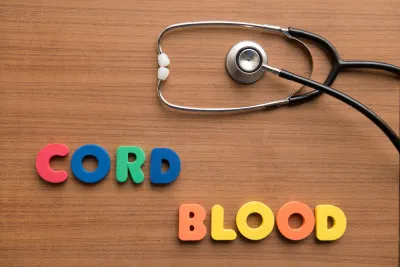What is cord blood? As the name suggests, it’s literally the blood that emerges after a newborn baby’s umbilical cord is cut by a doctor. On the surface, that may not indicate that this type of blood is in any way special, but cord blood does have some remarkably unique properties: specifically, it’s rich in stem cells, which can be used in a range of medical procedures. For example, cord blood may be used to help someone with a blood or immune system disease.
In the past, stem cells have been acquired through bone marrow, but that can be a tricky procedure. For this reason, as time goes on more and more medical professionals are turning to cord blood as a source for stem cells. But what, exactly, are the benefits of using cord blood?
1. Cord blood is easy to collect
There are essentially two major options for medical specialists in need of stem cells: collect them via bone marrow or cord blood. The former option can be problematic, as collecting bone marrow can be incredibly difficult (particularly for the donor).
In comparison, collecting cord blood is very easy. It poses no medical threat whatsoever to the mother or her new child. In some states there’s even a designated service that takes care of collecting the blood and transporting it to the places where it’s needed most.
2. Cord blood is easy to store
One of the major advantages of stem-cell-rich cord blood is that it can be stored relatively easily. That’s because, in most cases, it’s collected well in advance of when it may be needed, carefully packaged, and then frozen in a designated storage area.
This means that, once a match is found for the cord blood, it can be immediately accessed, distributed, and used. In comparison, with bone marrow the donor must be located and asked to set time aside to make the donation. Only once that is complete can the blood be distributed to the recipient and processed.
3. Cord blood matches need not be perfect
One of the central problems with using donated bone marrow is that a perfect match is required for the transplant to be even remotely effective. That further complicates a donation process that requires a donor to be found and asked to donate before anything can move forward.
In contrast, with cord blood — which can be collected any time and frozen until the moment it’s needed — there does not need to be a perfect match between donor and recipient. What this means is that a relatively small amount of cord blood can go a long way in helping patients. It also means that a patient desperately in need of stem-cell-rich blood can get the support they need in a very timely fashion.
4. Cord blood transplants are safer
The process of using bone marrow for stem cell research or medical transplants is, rather unfortunately, incredibly complex. It’s so complicated, in fact, that for the donation and transplant processes to be successful, a long series of steps must be executed flawlessly by a range of physicians and medical support staff.
On top of that, there’s a decent chance that, once a transplant is completed, a recipient’s immune system will react by attacking the patient’s own tissues. This is known as graft versus host disease, or GvHD. In contrast, with cord blood the chances of GvHD threatening the health of the receiving patient are far, far lower.
5. Chance or viral infection is lower
It is well established that the process of donating and receiving a bone marrow transplant is exceedingly complicated and even dangerous, particularly for the recipient. One issue that threatens a patient receiving a bone marrow transplant is the threat that they will acquire a serious virus, such as Epstein-Barr virus (EBV) and cytomegalovirus (CMV), both of which have the potential to kill an individual.
These viruses are less likely to present challenges when cord blood is used. That’s because only 1 per cent of all infants carry CMV. In fact, infants are less likely to carry a number of viruses that could present serious dangers to someone receiving their blood.
6. Cord blood helps minority recipients
Biologically speaking, there are some small but very significant differences between various ethnic minorities. In fact, in many cases donors must be of the same ethnic group as the recipient; this is particularly true when bone marrow is being transplanted from one individual to another. In other words, there are actual cases where an African-American person can only receive a bone marrow transplant from another African-American.
Cord blood presents fewer of these challenges. Because only a partial match is required, cord blood can make its way from someone of one ethnic group to a recipient from a completely different ethnic group without presenting significant health issues. Again, the major advantage is that less blood is required and the transplant and donation processes become less likely to encounter serious obstacles.









